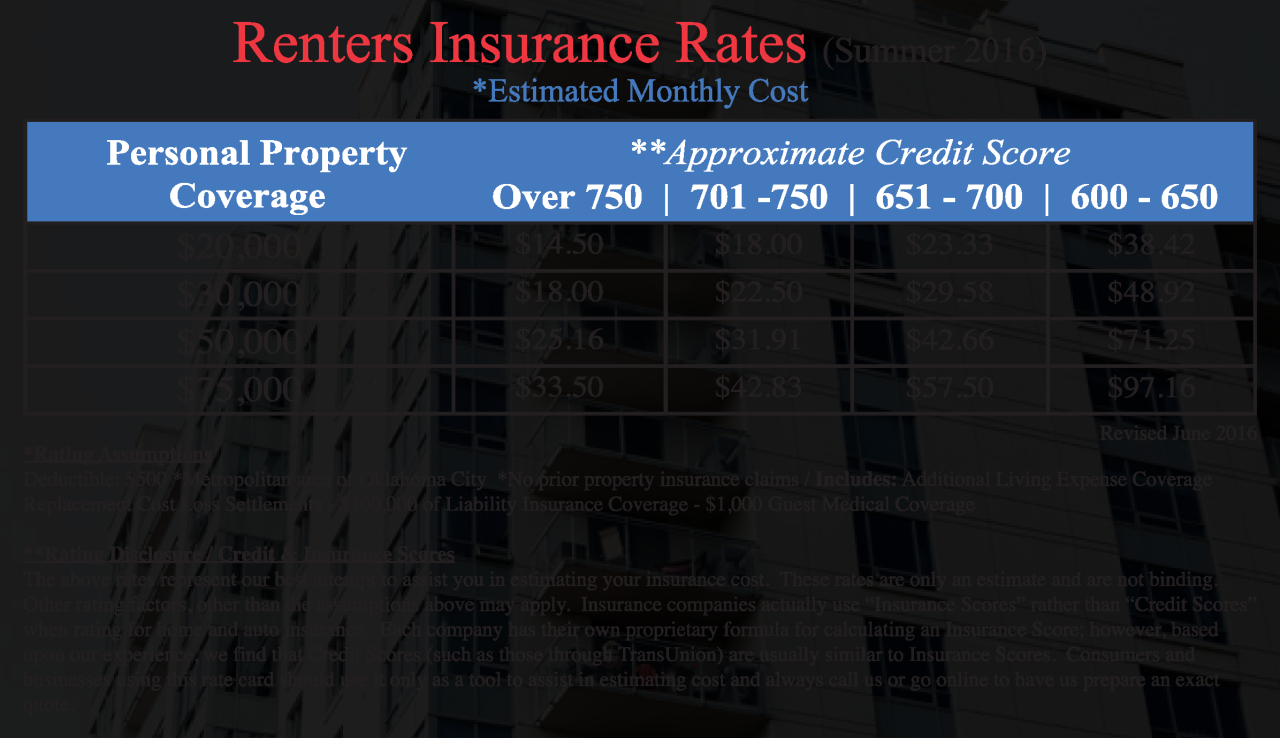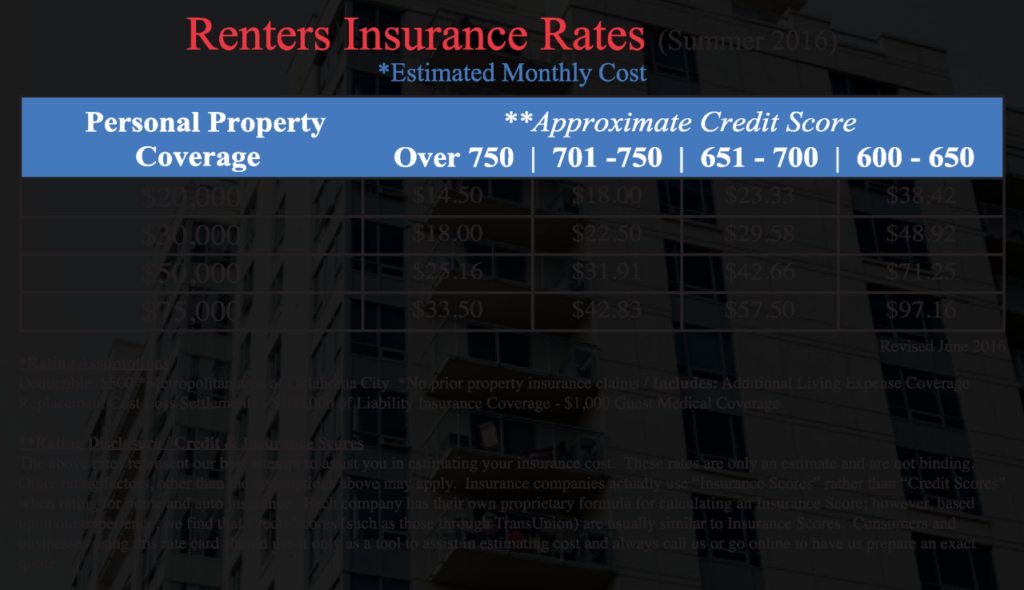Is renters insurance worth it? This is a question many tenants ponder, especially when faced with the added expense. While it may seem like an unnecessary cost, renters insurance can be a lifeline in unexpected situations, providing crucial financial protection for your belongings and personal liability.
Renters insurance offers a safety net against various perils, including theft, fire, water damage, and even liability claims from visitors. It can cover the cost of replacing your personal belongings, provide temporary housing if your apartment becomes uninhabitable, and offer legal defense in case of a lawsuit. Understanding the benefits and risks associated with renters insurance is essential for making an informed decision about your financial well-being.
What is Renters Insurance?

Renters insurance is a type of insurance that protects your personal belongings and provides liability coverage in case of accidents or damage to your rented property. It is a valuable investment for renters, as it can help you recover from financial losses caused by unexpected events.
Renters insurance is designed to provide financial protection against various risks that could affect your belongings and personal liability. It acts as a safety net, offering peace of mind knowing that you have insurance coverage in case of unforeseen circumstances.
Types of Coverage Offered by Renters Insurance
Renters insurance typically includes several types of coverage:
- Personal Property Coverage: This coverage protects your belongings against loss or damage due to covered perils, such as fire, theft, vandalism, or natural disasters. It helps you replace or repair items like furniture, electronics, clothing, and other personal possessions.
- Liability Coverage: This coverage protects you from financial responsibility if someone is injured on your property or you cause damage to someone else’s property. For example, if a guest trips and falls in your apartment, liability coverage can help pay for their medical expenses.
- Additional Living Expenses: This coverage helps pay for temporary housing and other expenses if you are unable to live in your apartment due to a covered event. For example, if your apartment is damaged by fire and you need to stay in a hotel while repairs are being made, this coverage can help cover your expenses.
- Personal Liability Coverage: This coverage protects you from financial responsibility if someone is injured on your property or you cause damage to someone else’s property. For instance, if a guest trips and falls in your apartment, personal liability coverage can help pay for their medical expenses.
Situations Where Renters Insurance Can Be Beneficial
Renters insurance can be beneficial in various situations, including:
- Theft: If your belongings are stolen from your apartment, renters insurance can help you replace them.
- Fire: In case of a fire in your apartment building, renters insurance can help you replace your belongings and cover temporary housing expenses.
- Natural Disasters: Renters insurance can provide coverage for damage caused by natural disasters such as hurricanes, tornadoes, or earthquakes.
- Liability Claims: If someone is injured on your property, renters insurance can help cover their medical expenses and legal fees.
Cost of Renters Insurance: Is Renters Insurance Worth
Renters insurance is generally affordable, but the cost can vary depending on several factors. Understanding these factors can help you find the most suitable and cost-effective policy for your needs.
Factors Influencing the Cost of Renters Insurance
The cost of renters insurance is determined by various factors, including:
- Location: The risk of theft, vandalism, and natural disasters varies depending on your location. Areas with higher crime rates or a history of natural disasters will typically have higher insurance premiums.
- Coverage Amount: The amount of coverage you choose will affect your premium. Higher coverage limits mean higher premiums.
- Deductible: Your deductible is the amount you pay out of pocket before your insurance kicks in. A higher deductible usually results in lower premiums.
- Personal Property Value: The value of your belongings will influence your premium. If you have expensive electronics, jewelry, or other valuable items, your premium may be higher.
- Credit Score: Some insurance companies consider your credit score when determining your premium. Individuals with higher credit scores may receive lower rates.
- Discounts: Insurance companies offer various discounts, such as multi-policy discounts, safety discounts, and bundling discounts. Taking advantage of these discounts can significantly reduce your premium.
Average Cost of Renters Insurance in Different Locations
The average cost of renters insurance varies across different locations. Here are some examples:
| Location | Average Annual Premium |
|---|---|
| New York City | $250 – $400 |
| Los Angeles | $200 – $350 |
| Chicago | $150 – $250 |
| Houston | $100 – $200 |
Tips for Finding Affordable Renters Insurance Options
- Compare Quotes: Get quotes from multiple insurance companies to compare rates and coverage options. Online comparison websites can be helpful for this purpose.
- Increase Your Deductible: Consider increasing your deductible to lower your premium. However, ensure you can afford to pay the deductible if you need to file a claim.
- Take Advantage of Discounts: Ask your insurance company about available discounts, such as multi-policy discounts, safety discounts, and bundling discounts.
- Consider a Higher Coverage Limit: If you have valuable belongings, consider increasing your coverage limit. However, be aware that this will increase your premium.
- Review Your Coverage Regularly: Review your coverage annually to ensure it still meets your needs and consider adjusting your coverage or deductible as needed.
Risks of Not Having Renters Insurance
Renters insurance is often overlooked, but it can be a crucial safety net in the event of unforeseen circumstances. While it may seem like an unnecessary expense, the potential financial consequences of not having coverage can be substantial.
Financial Consequences of Uninsured Events
The absence of renters insurance can leave you financially vulnerable in the face of unexpected events. These events can range from theft and fire to natural disasters and accidents. Without coverage, you would be responsible for covering the costs of replacing your belongings, repairing damage to your rental unit, and potentially even legal expenses.
- Theft: If your belongings are stolen, you’ll be responsible for replacing them out of pocket. This can be a significant financial burden, especially if you have valuable items like electronics, jewelry, or artwork.
- Fire: A fire in your apartment building can result in extensive damage to your personal property, leaving you with the cost of replacing everything that was lost.
- Natural Disasters: Hurricanes, floods, earthquakes, and other natural disasters can cause widespread damage to homes and belongings. Without renters insurance, you could be left with a substantial financial burden to rebuild your life.
- Liability: If someone is injured in your apartment due to your negligence, you could be held liable for their medical expenses and other damages. Renters insurance provides liability coverage to protect you from such financial losses.
Importance of Adequate Coverage, Is renters insurance worth
It is crucial to ensure you have adequate coverage to meet your specific needs. Factors such as the value of your belongings, the location of your apartment, and your individual risk tolerance should be considered when determining the appropriate level of coverage.
- Personal Property Coverage: This covers the cost of replacing your belongings in the event of theft, fire, or other covered perils. You can typically choose between actual cash value (ACV) and replacement cost coverage. ACV coverage pays the depreciated value of your belongings, while replacement cost coverage pays the full cost of replacing them with new items.
- Liability Coverage: This protects you from financial losses if someone is injured in your apartment due to your negligence. It covers medical expenses, legal fees, and other damages.
- Additional Living Expenses (ALE): This coverage helps you pay for temporary housing and other expenses if you are unable to live in your apartment due to a covered event.
Common Exclusions in Renters Insurance
Renters insurance policies, like most insurance policies, have exclusions that specify what is not covered. It’s crucial to understand these exclusions because they can significantly impact your coverage in the event of a claim.
Carefully reading your policy is essential to understand what is and isn’t covered.
Deciding whether renters insurance is worth it depends on your individual circumstances. Just like you might consider CHIP health insurance for your children, renters insurance protects your belongings in case of unexpected events like fire, theft, or natural disasters.
It’s a relatively small cost for peace of mind, especially when you consider the potential financial burden of replacing your possessions.
Common Exclusions in Renters Insurance
Here are some common exclusions found in renters insurance policies:
- Acts of War: Damage caused by war, terrorism, or military action is typically excluded.
- Earthquakes and Floods: These natural disasters are often excluded unless you purchase additional coverage.
- Neglect or Intentional Damage: If you intentionally damage your property or fail to take reasonable steps to protect it, coverage may be denied.
- Pets: While most policies cover damage caused by your pet, some exclusions may apply to specific breeds or types of damage.
- Valuable Items: Items exceeding a certain value, like jewelry or art, may require additional coverage beyond standard limits.
- Business Property: If you operate a business from your rental property, your renters insurance policy may not cover business-related losses.
- Structural Damage: Renters insurance typically covers your personal property, not the structure of the building itself.
Choosing the Right Renters Insurance Policy
Finding the right renters insurance policy is essential for protecting your belongings and financial well-being. It’s crucial to carefully consider your needs and compare different options to ensure you get the best coverage at an affordable price.
Determining the Appropriate Coverage Amount
The amount of coverage you need depends on the value of your belongings. You can estimate this by creating an inventory of your possessions, including their estimated replacement cost. This will help you determine the right coverage amount for your personal property. It’s also wise to consider the cost of living in your area and potential inflation.
For example, if your belongings are worth $50,000, you might choose a policy with $50,000 in personal property coverage. However, if you live in a high-cost-of-living area, you might want to consider a higher coverage amount.
Comparing Quotes from Different Insurance Providers
It’s essential to get quotes from several insurance providers to compare prices and coverage options. You can use online comparison tools or contact insurance companies directly. Look for policies that offer comprehensive coverage, including personal property, liability, and additional living expenses.
- Consider the deductible: A higher deductible usually means lower premiums, but you’ll pay more out-of-pocket in the event of a claim.
- Check for discounts: Many insurers offer discounts for things like having a security system or bundling renters insurance with other policies.
- Read the fine print: Carefully review the policy documents to understand the coverage limits, exclusions, and other important details.
Renters Insurance and Personal Property Valuation
Renters insurance protects your personal belongings from damage or theft. However, the coverage you receive depends on the value of your possessions. Understanding how renters insurance handles personal property valuation is crucial to ensuring adequate coverage.
When you purchase renters insurance, you need to determine the value of your personal belongings. This is because your insurance policy will only cover a certain amount for your possessions. If your belongings are worth more than your policy’s coverage limit, you may not be fully compensated for losses.
Estimating the Value of Personal Belongings
Estimating the value of your personal belongings can be a daunting task, but it’s essential for getting the right amount of renters insurance coverage. Here’s a breakdown of how to approach this:
- Inventory Your Possessions: The first step is to create a detailed inventory of your belongings. This can be done by going room-by-room and listing everything you own, including furniture, electronics, clothing, jewelry, and other valuables. Take pictures or videos of your belongings to document their condition.
- Consider Replacement Cost: When determining the value of your belongings, focus on their replacement cost. This is the amount it would cost to replace your belongings with new, similar items today. For example, if your TV is five years old and you need to replace it, the replacement cost would be the price of a new TV with similar features.
- Use Online Tools: Several online tools can help you estimate the value of your belongings. These tools often provide checklists and calculators to simplify the process. Some insurance companies also offer online tools specifically designed for their customers.
- Consider Appraisals for Valuables: For high-value items like jewelry, artwork, or antiques, it’s best to get an appraisal from a qualified professional. This will provide a more accurate assessment of their worth.
Replacement Cost Coverage
Replacement cost coverage is a valuable option for renters insurance. It allows you to be reimbursed for the full replacement cost of your damaged or stolen belongings, without deducting for depreciation. This means you’ll receive enough money to buy new items that are similar to the ones you lost. For example, if your couch is five years old and you have replacement cost coverage, you’ll receive enough money to buy a new couch, even though your old couch had depreciated in value.
Replacement cost coverage is generally more expensive than actual cash value coverage, but it can be a worthwhile investment, especially for people who have a lot of valuable belongings.
It’s important to note that replacement cost coverage may have a limit on the amount you can claim for certain items. For example, your policy may have a limit on the amount you can claim for jewelry or other valuables.
Renters Insurance and Liability Coverage

Renters insurance isn’t just about protecting your belongings; it also provides crucial liability coverage that safeguards you from financial ruin in case of accidents or incidents that cause harm to others. This coverage is essential for anyone renting, as it protects you from potentially devastating legal and financial consequences.
Potential for Lawsuits Against Renters
Renters can be held legally responsible for injuries or damages that occur on their property, even if the incident was unintentional. This is because landlords are typically responsible for maintaining the overall structure of the building, while renters are responsible for their actions within their unit. This means that if someone is injured on your property, you could be sued, even if you weren’t directly responsible for the incident.
Examples of Situations Where Liability Coverage Can Be Beneficial
- A guest trips and falls on a loose rug in your living room, sustaining injuries.
- Your dog bites a neighbor’s child while you are out.
- A pipe bursts in your apartment, causing water damage to the unit below yours.
- You accidentally damage your neighbor’s property while moving furniture.
In all these scenarios, liability coverage can help pay for medical bills, legal fees, and property damage, protecting you from significant financial losses.
Last Point
Ultimately, the decision of whether or not to get renters insurance is a personal one. Weighing the potential risks against the cost of coverage is crucial. If you value your belongings and want peace of mind knowing you’re protected in the event of an unexpected incident, renters insurance can be a wise investment. It’s a small price to pay for the security and financial stability it provides.

